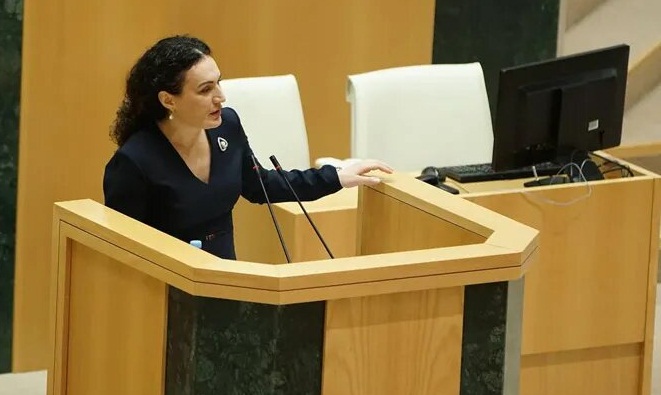Reconciliation minister in parliament: Tskhinvali region is now almost completely isolated

Reconciliation Minister Ketevan Tsikhelashvili has briefed MPs regarding the current situation in the occupied regions. Photo: IPN.
Georgian Minister for Reconciliation and Civil Equality Ketevan Tsikhelashvili has stated in parliament earlier today that at the moment she was delivering a speech in parliament, Georgia’s Russian-occupied Tskhinvali region was “was almost fully isolated” from the rest of Georgia.
The de facto Tskhinvali government has temporarily closed the so-called checkpoint to the Akhalgori district. Another so-called checkpoint at the village of Perevi also remains closed,” Tsikhelashvili said.
She stated that the closure of so-called checkpoints harms ethnic Georgians and Ossetians living in the region equally.
Tsikhelashvili has urged the “decision-makers” on the issue to open the so-called checkpoints to allow locals to have access to everyday items they buy in the rest of Georgia.
 It remains unknown when the de facto authorities reopen the a so-called checkpoint to Akhalgori. Photo: TASS.
It remains unknown when the de facto authorities reopen the a so-called checkpoint to Akhalgori. Photo: TASS.
Standing from the tribune I want to encourage and thank the people living beyond the barbed-wire-fences, who have undergone much trouble, and tell them that we, the Georgian government, spare no efforts to ease your burden. I want to assure you the artificial wall erected between us will be definitely destroyed like the Berlin Wall,” Tsikhelashvili said.
Tbilisi condemned the ‘temporary closure’ of the so-called checkpoint at the village of Perevi in an official statement released yesterday, pointing at serious humanitarian problems caused by such decisions.
Two crossing points at Tskhinvali occupation line - Odzisi and Sinaguri - have been closed since September 4, 2019 ’due to security threats’, the de facto government says.
The central Georgian government, the US Embassy to Georgia and the European Union Monitoring mission (EUMM) say that the closure of the so-called borders further complicates the situation on the ground and creates humanitarian problems.
 Tweet
Tweet  Share
Share